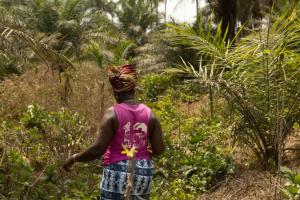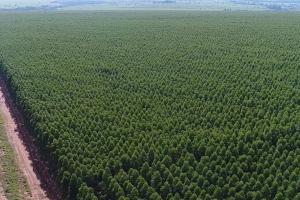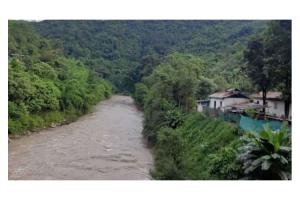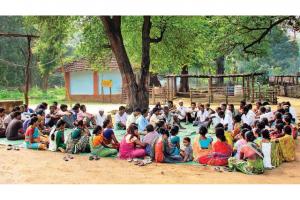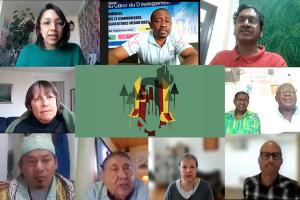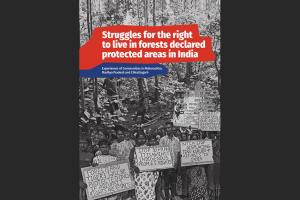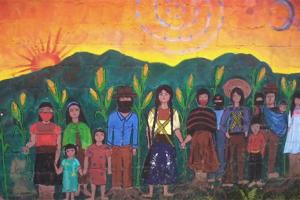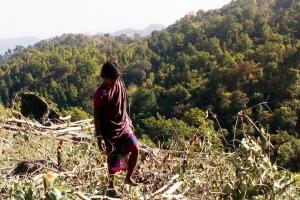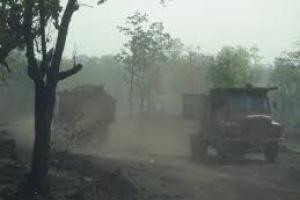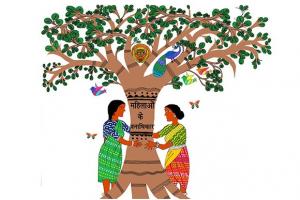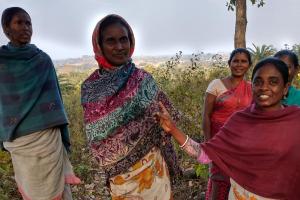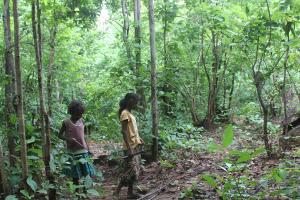Behind every tree plantation developed for carbon offsets, there are external agents seeking to profit from increased control over the land. And while they all have the same colonial approach, these plantations can vary widely: they can be large-scale monocultures or schemes with smallholder farmers; they can include exotic species or native species; and some of them may even exist on paper only.
India
Bulletin articles
27 June 2024
Bulletin articles
19 December 2023
In the past two years, tree plantation initiatives aimed at generating carbon credits have doubled. Whether as large monocultures or as nicely sounding projects with grassroots communities, tree plantations for carbon offsetting are neither a solution to the climate chaos nor beneficial to rural communities in the Global South.
Bulletin articles
25 October 2023
Land related struggles in India’s Northeast states might worsen with the push to expand oil palm plantations on small-farmers and Indigenous land, threatening their food sovereignty and the ancestral practice of Jhum (shifting cultivation). On top of this, a new Forest Amendment Law will facilitate this expansion, jeopardizing further the region’s forests and Indigenous Peoples.
Bulletin articles
16 June 2022
The ‘conservation’ model in India continues to enclose forests and evict communities in a deliberate attempt to undermine and scuttle the Forest Rights Act (FRA) - a landmark legislation that strengthens the authority of communities over their forests. Meanwhile, companies are allowed to destroy forests, even inside the conservation areas.
Multimedia
31 March 2022
On 15 March, over 360 organisations launched a statement exposing that "Nature Based Solutions" will cause huge new land grabs and promote harmful practices like monoculture tree plantations and industrial agriculture.
Publications
15 March 2022
New publication calls attention to the devastating impacts of Protected Areas in India.
Bulletin articles
17 November 2020
WRM spoke with close allies from Brazil, Gabon, India, Mexico and Mozambique, to hear from them and learn about their understandings of development.
Bulletin articles
15 July 2020
Funds from the Compensatory Afforestation scheme have been allocated for Covid-19 relief measures. The scheme has funded plantations that invade community land and has led to illegal evictions where “Protected Areas” have been declared. This has not stopped during the lockdown.
Other information
15 July 2020
In a series of articles, forest communities talk about the violation of their forest rights as a result of government approvals for forest destruction in connection with hydropower and coal projects that were passed or accelerated during the pandemic. During the lockdown, the Ministry of Environment and Forests approved large-scale industrial, mining, hydropower, roads and highway construction projects without the required due diligence and in disregard to environmental laws and the Forest Rights Act (FRA).
Bulletin articles
14 May 2020
The inter-dependencies in and among communities with their life spaces and practices sheds light to the conservation practices of forest communities. And within these interdependencies lie the stories of women.
Other information
5 March 2020
The People’s Climate Report, from the People’s Climate Network, is designed to offer a perspective on climate change from the bottom up. It aims to understand how communities across the world experience the changing climate. This report offers a glimpse of experiences and voices from communities dealing with a changing climate in West Bengal, Odisha, Jharkhand, and Chhattisgarh, parts of India where waters and forests are increasingly under threat from climate change, deforestation, and lop-sided development.
Bulletin articles
13 January 2020
A feminist view on Commons reveals that accumulation opposes the basic principles of sharing and sustaining: receiving from nature’s abundance is done by ensuring that needs (and not wants or greed) define the extent of extraction.
